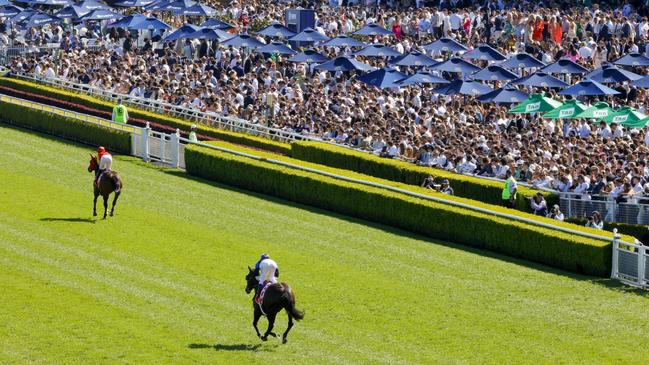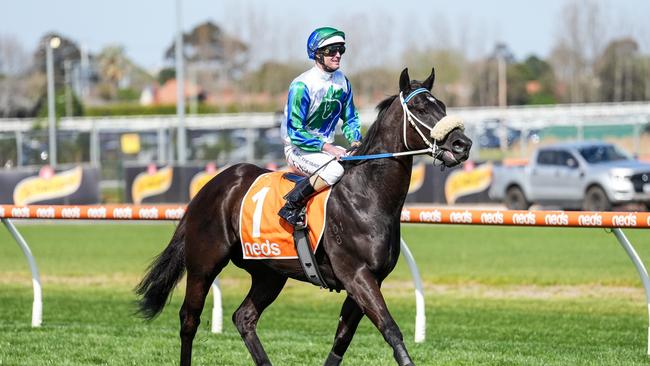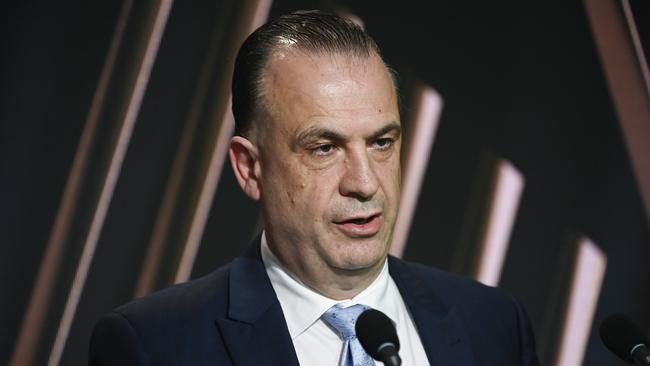The trickery behind gaining a slot in The Everest
The most valuable real estate in Sydney right now is a $700,000 slot in The Tab Everest, but it’s not all as it seems.
Horse Racing
Don't miss out on the headlines from Horse Racing. Followed categories will be added to My News.
The most valuable real estate in Sydney right now is a $700,000 slot in The Tab Everest.
The Daily Telegraph can reveal that one of the 12 slots for this year’s race has been leased for $1.1 million – a more than 50 per cent jump in value worth $400,000.
The slot’s owner, William Inglis thoroughbred auctioneers, has held the slot on a rolling three year contract since the first running of The Everest in 2017. The race is now the world’s richest race on turf with a prize pool of $20 million.
Inglis managing director Mark Webster refused to confirm officially the $1.1 million price tag it charged New Zealand based betting company Entain to lease the slot for one year only. However multiple racing sources have confirmed the whopping mark up to The Daily Telegraph.

“When we heard the reasoning why it made sense,” Mr Webster said.
“New Zealand‘s an incredibly important market ... so it made sense to us to help them.”
Cameron Rodger, executive director of Entain, said the company wanted to “make a splash” into the Australian market and raise the profile of the race in New Zealand.
“The Everest is a race that’s really captured the imagination of the younger generation of punters … which is one of the challenges that we’ve got down there in NZ,” he said.
“We look at what Racing New South Wales has done with that race and … it’s something that we really wanted to be a part of.”
Mr Rodger said he had opted to put the New Zealand bred gelding I Wish I Win into the slot after striking a deal with Kiwi owner Mark Chittick.
It is understood that deal is cut very favourably for Mr Chittick and Victorian trainer Peter Moody if the prize money rolls in on October 14.

“One of the reasons you start talking about the race so far out is that slot component,” Mr Rodger said.
“Who’s got what? Which choice are they targeting? Have they reached a deal with the owner and the trainer and every part that goes into it.
“We’re not blind to the fact that Mark would’ve been fielding calls left, right, and centre and we’re really grateful,” he said. “What he recognised was our partnership … it was a big thing for NZ.”
Racing NSW chief executive Peter V’landys said the $700,000 slots were in high demand.
“Some of the slots have been sold for up to a million dollars, so they’ve made a substantial profit,” he said.
“One slot owner only raced it once and sold it every other year and got $300,000 to $400,000 per year profit, which is not a bad effort.”
Mr V’landys said the slot idea had come originally from the American race The Pegasus where it struggled because the slots were only held for one year at a time.

“So to be a slot owner in the Everest, you had to take it for three years and then you would have to renew two years out. So that way there was always certainty that the race would proceed. And this is our seventh running,” he said.
Originally the slots were sold for $600,000 each for a race with a $10 million prize pool. The slot price has now risen to $700,000 with a one in 12 chance of winning $7 million for first past the post and a guaranteed $700,000 payday for the back markers.
“Look, (the prize money) has gone to $20 million. So for an extra a hundred thousand they’ve got an extra $10 million in prize money,” Mr V’landys said.
“It’s the second biggest wagered race in New South Wales … that’s a remarkable feat and that’s been able to allow us to put all that additional revenue back into the prize money.”
That philosophy has worked for Mr Rodger who said: “We’d love to have another crack at it for many years to come.”
Read related topics:The Everest



